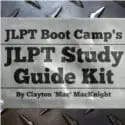The N1 is the ultimate achievement of the JLPT. For the new tests, they have supposedly made it more difficult than the old tests. This is because they have introduced more advanced concepts that were not covered in the old tests. This level requires about 1000 hours of in classroom study to complete. But, unless you are a genius, you will most definitely have to supplement that with a lot of external studying and practicing.
JLPT N1 – Basic Info
The N1 covers advanced Japanese. At this level, you should be able to read and understand the main points of just about everything. This includes newspapers, magazines, editorials and critiques. They key to this level is complete understanding. So, you should be able to say, watch a TV show and not have any issues understanding the situation and how the characters are related to each other.
The N1 is designed to test your ability to work in a completely Japanese working environment. After passing the test, you should have no issues working in a Japanese company. For most positions, barring visa issues, potential employers will think of you as a near-native speaker of Japanese. They still want to test your fluency orally in an interview probably, but this is where most of the jobs in Japan are available (outside of the English-teaching industry).
If you are looking to go to school in Japan. Passing the N1 is a great start. Although there is now a separate test that judges your Japanese level for university. This test will also give you a good benchmark of how close you are to being fluent in the language.
Practice Tests
There are actually three sets of practice tests available for each level of the JLPT. The first set are called ‘sample questions’. These just have two questions for each section. Basically, it is a good way to get a feel for what the test is like and how difficult it is before taking a full practice test. There are also two full practice tests you can download for free as well. The JLPT website refers to these as ‘workbooks’.
JLPT N1 Sample Questions (Download) or Answer them Online
JLPT N1 – Grammar
The grammar that will be on the N1 is the same as the old level 1 with some added complexity. There are a variety of books out there that provide good lists of grammar. The Kanzen Master series is a good place to start or you can check out Jonathan Waller’s list as well.
Overall, the grammar at this level is more formal versions of connectors already presented before. You should be used to this sentence structure by now. At this level, it’s just a matter of becoming familiar with the new structures and learning the nuances. They will really test you on the different nuances between the grammar points.
JLPT N1 – Kanji
You will need to know 2000 kanji. This includes all general use kanji, commonly called joyo kanji. In other words, you need to learn all of them. This is where learning the radicals instead of the brush strokes really comes in handy. A lot of the kanji will start to blend together because the only difference between them is a small radical.
It might be helpful to join a Japanese calligraphy class (書道). Some people prepare for this level by studying for the kanji kentei, which is a popular kanji test for Japanese. You’ll also find plenty of DS software that helps you prepare for the kanji kentei. Outside of Japan, you can check out White Rabbit Press for a whole slew of kanji practicing games, including the all encompassing Kanken DS.
JLPT N1 – Vocabulary
Again, this level has a pretty daunting 10,000 18,000 vocabulary words to know and understand. You should drill and practice some of the 10,000 18,000 from the lists available in Anki (that cover the old 10,000 that used to be required), but this should definitely be supplemented by a lot of reading and listening.
If you are outside of Japan and are studying for this level, you will have to have steady exposure to the language in order to pass. This means at least an hour and probably 2 to 3 hours of Japanese exposure a day. You will have to do a lot of reading with either some novels or find an online source of news articles to read on a regular basis.
If you are inside of Japan, start watching a lot of TV especially dramas. Dramas have situations that are easy to understand. For example, you know that it is a husband and wife talking with each other. This will make it a lot easier to ‘guess’ the types of words that they will be using. Also, try to watch debate or discussion programs. It’s probably best to avoid sports, comedy or variety shows.
So, what’s this thing good for?
The N1 is the highest level of the JLPT. As such, it is good for just about everything. You’ll be able to get a job in Japan fairly easily (if you already have a visa). You can work in anything from IT to translation depending on your interests. There really aren’t any restrictions.
You will also be able to easily take university classes in Japan. The N1 is not required by any universities anymore. There is now actually a separate test for that, but if you are studying for the N1 and pass the N1, there is a good chance classes will be that much easier.
Be aware that you still aren’t ‘finished’ with the JLPT. To stay current (in the eyes of most potential Japanese employers) you will need to take the test every 2 years. This shouldn’t be a problem if you are working in a Japanese company and they don’t require you to take the test, but if you are job hunting (or planning to in the near future) be sure to renew your certification.
In Summary
If you pass the N1, you will have achieved the ultimate goal in terms of the JLPT. The people that I know that have achieved this can easily read and work with Japanese. At this level, you are able to see the world quite differently in Japan because you can watch the news, TV shows, and go to movies without needing subtitles or assistance. It’s quite a feeling. You still won’t be able to understand absolutely everything, but you will be pretty close.
Now it’s your turn to take action. In the comments below, let me know any resources you are using to study for the JLPT N1. Did they help? What would you recommend to someone that is studying for the N1? Don’t be afraid, help your fellow man (and woman) pass the test!
Image by drcorneilus, available under the Creative Commons 2.0 Generic License












I think it’s more like a gradual process, it’s not like if you pass N1 it automatically means you understand everything perfectly, even when talking with Japanese people it’s sometimes necessary to recur to writing kanji to make one’s point clear, due to the nature of the language (that’s why they watch TV with subtitles even if it’s in their own language). Btw I passed 2kyuu on 2008 and tomorrow I’ll go for N1, I’ve found your advice very helpful 😀 thanks
If anything, I’d say studying vocabulary by classifying it in semantic groups helps, it might also help to stop thinking about numbers (like “I still have 500 kanji to go”), it spares you psychological pressure, and then you can concentrate that processing into learning more.
my two cents 🙂
I can see the advantages in numbers and non-numbers. Some people like to have mini goals and it keeps them motivated, like I need to learn 50 more kanji! But, I’ve found that if I only focus on the numbers I turn into a drilling monkey, and can’t actually use the language. I mean it is a bit pointless if all you can do with Japanese is pass a test about it. You still have to get out there and use it right?
I try to alternate between studying intensively for a given level and just having fun with the language. I’m in a bit of crunch right now, because I’d like to change jobs and having N2 or even N1 would at the very least get me more interviews. So for now, it’s drill baby drill. 🙂
Thanks for commenting and I hope you aced the N1!
I am learning every new words with Kanji, too, but I don’t know how many Kanji memorized I yet. But I don’t want to know it. Because for example if “I memorized 1000 Kanji yet”, it spares me psychological pressure, because it means that “I didn’t memorize 1000 Kanji yet”:))
Haha, exactly, some people love goals, others take their own path. Whatever keeps you motivated!
Hi Mac,
Regarding the vocabulary section for N1, they’ve actually raised it from 10,000 to 18,000. I read this in the new Kanzen Manster vocab book and was initially surprised, but it explains why many of the words on the July 2011 exam weren’t in any of the vocab lists I’ve seen.
Good luck with your studies!
Holy cow Julian!
That’s amazing. It looks like they’ve simply expanded it to include all the common words in Japanese. I guess that makes sense, but wow that’s a lot of vocabulary practice. I revised the article to be more accurate. Thanks for the correction and good luck on the test!
I think that approaching N1 you should by now be reading a wide variety of Japanese materials, the more scientific and (possibly) dull as possible because a lot of the reading items that seem to turn up at this level are science related articles (the ubiquitous graph too!) and selections from colmnists, the kind that you find in the opinion pages of any general newpaper or weekly.
Re the subtitles on tv thing…I am not sure if they are used to emphasise an obscure point – too many shows I have seen feature flashing visuals such as ‘ he jumped into the pool! He is all wet now! When I ask friends and family in Japan why this is done, the general view is that its ‘fun’ and adds to the fun atmosphere to have subtitled phrases which are clearly audible and comprehensible anyway (unless theya re aids for deaf viewers!) my 3 cents
I think the graphs have been scaled down a bit. They are still definitely present, but before it was actually one of the questions on the test. That has since been replaced by an information retrieval question. However, they do sometimes (this is a guess purely based off practice books) have readings where the answers are different types of graphs. But, yeah, they get pretty editorial, science heavy the higher up you go with JLPT.
As for subtitles I was talking about the ‘real’ subtitles, or what we might call closed captioning in the states that now comes standard on almost all new TVs now in Japan. That has definitely been a boon for my language learning and comprehension. I’ve also heard those big crazy flashy subtitles are also used for different dialects too.
Thanks for commenting Stephen!
I did the JLPT N1 a few days ago, but I didn’t use any book for it. If you want to speak fluent Japanese, you don’t only have to know the answers of the JLPT, but you also have to be able to write the texts of the JLPT on your own.
The listening comprehension part was much easier than expected. There was no sentence structure that I don’t use myself. Nevertheless there were a few parts in the other sections that I was only able to understand.
The N1 shows that you are able to understand Japanese on a high level and it helps you to get a job in Japan, but if you really want to learn Japanese, don’t prepare for the JLPT, but try to work on your own Japanese. There are some structures in the grammar section that you won’t hear on the streets, but if you ask natives, they can use it for sure. If your Japanese is good, you don’t have to prepare for the JLPT at all.
That’s a good point. I think you not only have to be able to input a language (reading/listening), but also do some output (writing/speaking). You can’t get very far if all you focus on is reading and listening, which is essentially what you need to do to prep for the JLPT.
I do think you need to specifically prep for the JLPT though because it does require some good test taking skills and a few strategies. You could arguably pass it without them, but you would be doing a lot more work than you need to.
Thanks for sharing your experience, and I hope you passed.
Thanks for your fast answer! I learned Bungo/Kanbun in the past, which helped me to understand the grammar that you don’t see often in modern Japanese. Maybe that’s why I have a good feeling about it, although I wasn’t really prepared for the JLPT itself.
For example you have something like べからず, but you can split it up in morphemes that were really productive in the past (bek(u) + ar(u) + -azu). If you are used to it, remembering these forms should be a lot easier than just remembering the grammar point. Take “bek(u)” for example. You will also find it in its adnominal form “beki” and finite form “beshi” (“beku” is the adverbal one) in the preparation books for the JLPT.
There might be a lot of other different learning methods, but if you understand the inner structure of “bekarazaru” (bek:ar.az:ar.u << beku arazu aru) for example, it's a lot easier to get a feeling for those forms and to remember them. What do you think?
That makes sense. I do feel like sometimes the JLPT prep books just give you the basics, but if you do a little digging you can get a deeper meaning and a better understanding of the material.
Thanks for sharing the tip. I’ll have to look into that.
Thanks alot, I thought JLPT just cover the basics
So I would be able read novels, but needs improving ?
And I was looking for kanji dictionary and found one that covers 47000 kanji
Is that further study or what ?
Thanks a lot in advance
I am reading books written in Japanese. Now for example I am reading “The Power” from Ronda.
I just failed N1, and I would say that I don’t have too many problems reading regular fiction. I will have to stop and look up the occasional word or guess at a meaning here and there, but I have an overall understanding of the situation. What is a problem is more philosophical pieces where they use more abstract language. That can get quite tough.
47,000 kanji? That sounds like Chinese. There are only about 2000 kanji in common use in Japanese and that’s for newspapers. For books, blog posts, and pretty much any other form of writing the number is somewhere around 1500 I would say. N2 covers about 85% of what you will see, in my opinion.
There are some rarer kanji that are used for science and academia, classic Japanese, and place names, but I think the maximum number of kanji in use is only around 6000 or so.
Hi, I find that taking the vocabulary from the Kanji Kentei as you mentioned above does help with the JLPT. Since the Kanji Kentei assumes native Japanese writing ability, you also have to be able to not only write the kanji elegantly, but quickly. Unless you are a Chinese student learning Japanese, this can be very very trying. I threw in the towel (well kind of) and decided to make flash cards using the kanji kentei vocabulary words but study them for recognition only. Thank goodness for smartphones and laptops which make writing kanji unnecessary! This way, I could move onto devoting my time to really focus on building my vocabulary and focus my time on the reading, speaking, and listening, which is far more practical for most western students, myself included. I feel that the JLPT examiners sympathized with this problem and took this into careful consideration when they formulated these tests which have become popular over the years. While it is not perfect, I REALLY love how they structure their training to suit us. Leave the kanji writing to the Japanese to deal with. They are not bothering us with it either so let gaijin be gaijin and let the Japanese be Japanese.
Exactly, I figure it is something I can pick up later. Maybe when I’m retired, it’ll be a fun hobby to pick up. 🙂